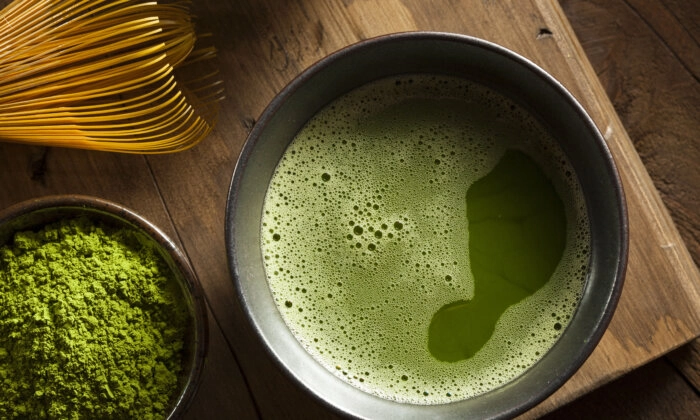|
Getting your Trinity Audio player ready...
|
In two studies, researchers found catechins in mouthwash containing matcha green tea powder inhibit P. gingivalis bacteria that causes periodontitis
By: Megan Redshaw, J.D.
New research suggests that using a mouthwash containing matcha, a finely ground green tea powder, may prevent and treat inflammatory gum disease.
In a report published on May 21 in Microbiology Spectrum, researchers from Japan found that matcha inhibits the growth of Porphyromonas gingivalis (P. gingivalis)—a type of bacteria known to cause periodontitis.
Periodontitis, or gum disease, is a serious infection of the oral cavity triggered by poor oral hygiene. The condition causes a sticky biofilm of anaerobic bacteria to build up on the teeth and, if left untreated, destroys the supporting tissues and bones.
In their initial study, the researchers conducted in vitro experiments to test the efficacy of a matcha solution against 16 bacterial species found in the mouth, including three strains of P. gingivalis. Within two hours of exposure to the solution, nearly all of the P. gingivalis cells were killed. At four hours, all the cells died, suggesting matcha inhibits bacterial growth and has bactericidal properties.
In a second clinical study, the same researchers divided 45 people with chronic periodontitis into three groups and gave each group either sodium azulene sulfonate hydrate, barley tea powder, or matcha powder to assess whether mouthwash solutions derived from the powders eliminated P. gingivalis in the oral cavity.
The participants prepared mouthwashes at home using specific tap water concentrations and rinsed twice daily with 10 milliliters of mouthwash for a month. After rinsing, they avoided eating and drinking for 30 minutes.
The researchers found that participants in the matcha mouthwash group had significantly lower levels of P. gingivalis in their saliva samples at the end of the study compared with the two other groups.
While the report isn’t the first to find that tea-derived compounds have antimicrobial effects on P. gingivalis, the authors said their study supports using matcha as a prevention or treatment plan for people with periodontal disease.
How Matcha Differs From Green Tea
Matcha, along with green, white oolong, and black teas, are produced from the Camellia sinensis plant. However, they differ in how they’re cultivated, processed, and prepared. For example, green tea leaves are not shielded from direct sunlight before harvesting, which results in a lighter green color and a different nutrient profile. Green tea is prepared by steeping whole leaves in hot water, which are then removed before drinking.
Matcha is derived from the same plant that is cultivated in the shade for several weeks before harvesting. This method protects the young leaves from the sun and increases the accumulation of biologically active compounds such as chlorophyll, caffeine, theanine, and catechins. The leaves are then ground into powder and infused into water.
Although matcha is lower in catechins compared with other teas derived from the same plant, once it is dissolved in water, it produces three times more catechins than loose-leaf green tea. Compared to green tea, the nutrients in matcha are more bioavailable and higher in antioxidants, caffeine, and amino acids.
Catechins May Explain Bactericidal Effects
Studies suggest catechins in matcha may explain the bactericidal effects observed by researchers. Catcheins are the main polyphenols and antioxidant agents found in the leaves of the tea plant that give it antimicrobial and other beneficial properties. The preparation methods of the plant and the differences in variety, origin, and growing conditions influence the quality and quantity of the catechins.





